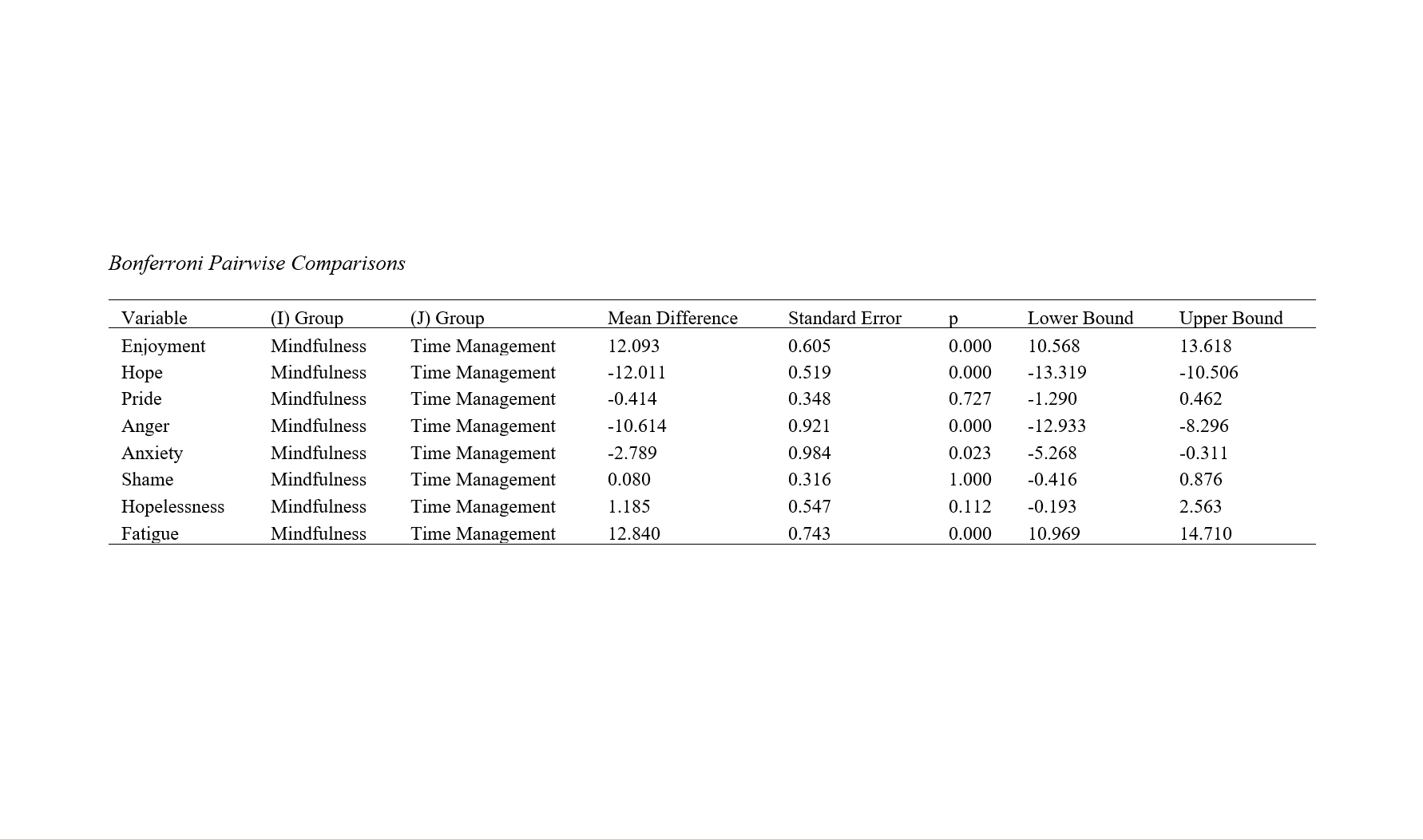Assessment of the Effectiveness of Mindfulness Training Based on Stress Reduction and Time Management Skills Training on Academic Emotions
Keywords:
Mindfulness-Based Stress Reduction, Time Management Skills, Academic EmotionsAbstract
Objective: The aim of the present study was to assess the effectiveness of mindfulness training based on stress reduction and time management skills on academic emotions.
Methods and Materials: The research method was a quasi-experimental design with a pre-test-post-test with a control group. The population consisted of all female students in the first cycle of secondary school in the city of Rey during the 2019-2020 academic year, from which 45 students were selected through screening of pre-test results and randomly assigned into two experimental groups and one control group (15 students each). The first experimental group received stress-reduction-based mindfulness intervention derived from Kabat-Zinn's Full Catastrophe Living (2005) over 8 sessions, and the second experimental group received time management skills training from Tracy and Brian (2008) over 10 sessions. Data were collected using the Academic Emotions Questionnaire by Pekrun et al. (2005).
Findings: The analysis of data using multivariate analysis of covariance showed that mindfulness training based on stress reduction and time management skills was effective on students' academic emotions at a significance level of P<0.001. Additionally, the results indicated that mindfulness was more effective on the components of hope, anger, and anxiety of academic emotions, while time management was more effective on the components of enjoyment and fatigue of academic emotions.
Conclusion: It can be concluded that the application of educational interventions in academic processes will facilitate the regulation of students' emotions.
Downloads

Downloads
Additional Files
Published
Submitted
Revised
Accepted
Issue
Section
License
Copyright (c) 2024 Khadijeh Niknam (Author); Zabih Pirani (Corresponding Author); Firoozeh Zanganeh (Author)

This work is licensed under a Creative Commons Attribution-NonCommercial 4.0 International License.








